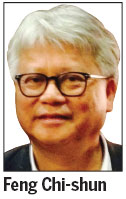Mainland medical geniuses the answer to HK's acute shortage of doctors
Updated: 2013-11-25 06:51
By Feng Chi-shun(HK Edition)
|
|||||||
There is a serious shortage of doctors in Hong Kong and it affects mainly public hospitals.
Based on the frequently cited figures, more than 90 percent of inpatient services are performed in public hospitals, where fewer than 50 percent of our doctors work.
Since it takes years to train a doctor, the obvious quick remedy is to hire overseas doctors. When Hong Kong was a British colony, all Commonwealth doctors are eligible to practice in Hong Kong; non-Commonwealth ones had to take a qualifying exam. After the handover, all foreign medical graduates have to take the exam, which is notorious for its level of difficulty, with a pass rate of 10 percent or less.
It's no wonder we continue not to have enough doctors in public hospitals, and waiting time for elective surgeries takes months and years.
In this respect, Hong Kong could learn from the US. When I was in the US for specialist training in the 1970s, my competency in the practice of medicine was always suspected because I graduated from a medical school in the Orient. Such prejudice was widespread but understandable, given that I went to a country with rightful claims to be the most advanced in science, technology, and medicine, while Hong Kong was then a third-world city.
The validation of my competence came with passing exams.

I was tested on my basic knowledge in medicine and in English proficiency before I was even allowed to work as an intern. The US government made this entry level exam easy; I passed it months before I graduated from the University of Hong Kong.
I had to pass another exam after internship to qualify for a medical license. After years of training in pathology, I took and passed another exam to be a certified specialist.
I tolerated the hardship because this was the career path I had chosen, and I found consolation in knowing that all foreign medical graduates were given the same treatment, without exception and exemption.
Many foreign medical graduates, especially those from Western countries, protested vociferously. But the American licensing authority has stuck to its non-discriminatory policy over the years, and has never exempted any foreign graduates based on their country of origin, or the prestige of their medical schools.
To solve the shortage problem, Hong Kong's Hospital Authority has come up with a solution that some argue is flawed. It is giving limited license to selective non-local medical graduates so that they can practice in public hospitals without taking the exam. The candidates must speak Cantonese and hold a valid medical degree. Fair enough. But that's where the transparency and accountability of the selection process ends. By picking candidates based on their paper credentials and not by a more objective method, such as test scores, the authority is inclined to admit only medical graduates from world-renowned schools from Western countries, and exclude those from less prestigious ones, especially those from the mainland.
The difference between an ethnic Chinese from a Canadian medical school and one from a Chinese medical school is the family background. But, unlike family wealth and prestige, medical knowledge is acquired and not inherited. Regardless of their undergraduate medical education, all doctors have an equal chance of being nurtured into a highly competent healer. Doctors learn most of their skills at the postgraduate stage.
Perhaps, a better way for the Hospital Authority to deal with the shortage crisis is to recruit Cantonese-speaking non-local medical graduates from around the world, and lower the entry bar for them to start working in Hong Kong by easing the exam to a level at which the pass rate is at least 50 percent. The way the current exam is structured, it is suitable only for fresh graduates, but is counter-productive to our goal of recruiting competent doctors. Many of the candidates have already had a few years of practice experience in their own fields, and might have forgotten many didactic facts in other areas. Is there really any need for a future ophthalmologist to also have indepth knowledge of gynecology?
And like in the US, they could start work as an intern, and are allowed a full license only after years of training and passing a more advanced exam in their specialty.
The approach used by the Hospital Authority in picking candidates to work for them is problematic because it is whimsical and non-transparent, and easily perceived to be discriminatory or having a hidden agenda. It invites criticism and possibly lawsuits.
Most of all, the pool of potential medical geniuses is much bigger on the mainland than the small group of Cantonese-speaking doctors who graduated from Western countries. Hong Kong will lose out if this valuable human resource is not tapped.
The author was a consultant pathologist for the Hong Kong government and St. Paul's Hospital before his recent retirement. He was a lecturer at the Medical Faculty of the Chinese University of Hong Kong and a diplomate of the American Board of Pathologists.
(HK Edition 11/25/2013 page9)